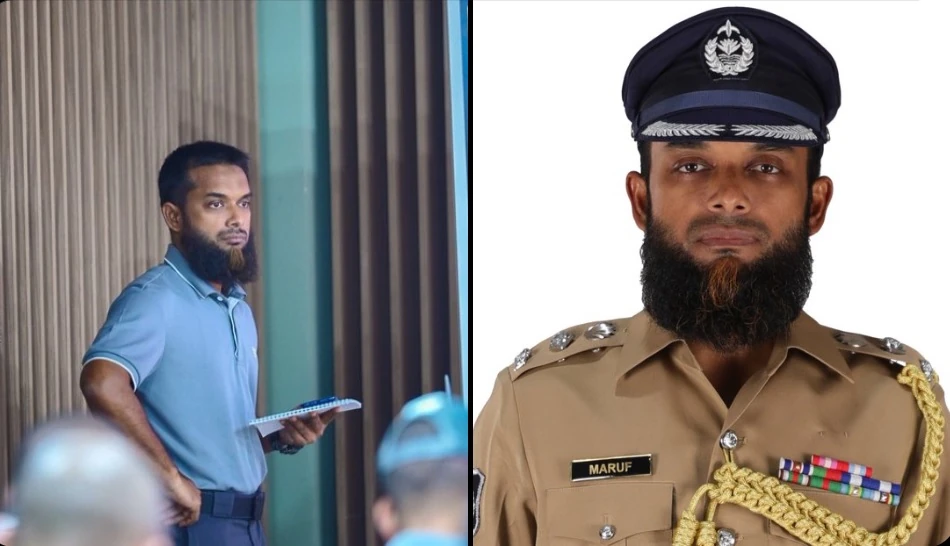
Bangladeshi Officer Inspired by Dubai Police's Positive Reforms
Dubai Police Emerges as Global Leader in Digital Law Enforcement Innovation
Dubai Police is positioning itself as the world's premier training ground for next-generation law enforcement, with officers from 38 countries completing an intensive program focused on cryptocurrency crime prevention, AI-powered policing, and blockchain evidence management. The initiative signals a strategic shift as traditional police forces worldwide grapple with rapidly evolving digital threats that transcend borders.
International Training Program Addresses Critical Skills Gap
Lieutenant Colonel Maroof Abdullah from Bangladesh Police was among 54 officers who completed Dubai Police's second Police Innovation and Leadership (PIL) diploma program, developed in partnership with the Rochester Institute of Technology. The curriculum tackled pressing modern challenges including cryptocurrency fraud detection, blockchain-based evidence management, and artificial intelligence integration in daily police operations.
"We face increasing challenges related to cybercrime and financial fraud in Bangladesh," Abdullah explained. "The digital transformation module for combating financial crimes was particularly crucial, helping me formulate effective strategies to improve our unit's performance."
Cryptocurrency Crime Takes Center Stage
The program's emphasis on cryptocurrency-related threats reflects a growing recognition that digital assets have become a preferred tool for international criminals. Abdullah's capstone project focused specifically on cryptocurrency crime awareness—a topic that has gained urgency as crypto adoption accelerates across developing markets like Bangladesh, often outpacing regulatory frameworks.
This focus aligns with global trends where law enforcement agencies struggle to keep pace with crypto-enabled money laundering, ransomware attacks, and cross-border fraud schemes that can move millions of dollars within minutes.
Dubai's Smart City Infrastructure as Law Enforcement Model
What sets Dubai's approach apart is its integration of smart city technology with policing strategy. The emirate leverages comprehensive data analytics, AI-powered surveillance systems, and predictive policing models that other jurisdictions are now studying as templates for modernization.
"Dubai Police harnesses all smart city systems, data analysis, and AI surveillance for prevention, transparency, and building public trust," Abdullah noted. "This approach deserves serious study by police leadership worldwide."
Beyond Technology: Leadership and Mental Health
The program also addressed softer skills often overlooked in traditional police training. Leadership development modules focused on strategic thinking and confident decision-making, while wellness sessions emphasized the importance of mental and physical sustainability in security roles—a recognition that modern policing demands both technological sophistication and human resilience.
Implications for Global Law Enforcement Evolution
Dubai's emergence as a law enforcement education hub reflects broader geopolitical shifts in the Middle East. As the UAE positions itself as a global financial and technology center, its police force is becoming a soft power asset, exporting expertise and building international relationships through training programs.
For participating countries like Bangladesh, access to cutting-edge training represents a significant capability upgrade that would be difficult to develop domestically. The knowledge transfer could prove particularly valuable as South Asian nations face increasing pressure from cryptocurrency-related crimes and cross-border digital fraud.
Competitive Landscape in Police Innovation
Dubai's initiative puts it in competition with established law enforcement training centers in the United States, United Kingdom, and Singapore. However, its focus on emerging technologies and willingness to share advanced capabilities with developing nations creates a unique value proposition in the international security cooperation market.
The program's success could influence how other advanced police forces approach international engagement, particularly as cyber threats increasingly require coordinated global responses that transcend traditional diplomatic channels.
The broader significance extends beyond law enforcement training—it represents how middle powers like the UAE are using technological expertise and educational diplomacy to build influence and partnerships in an increasingly multipolar world.
Most Viewed News

 Sara Khaled
Sara Khaled






